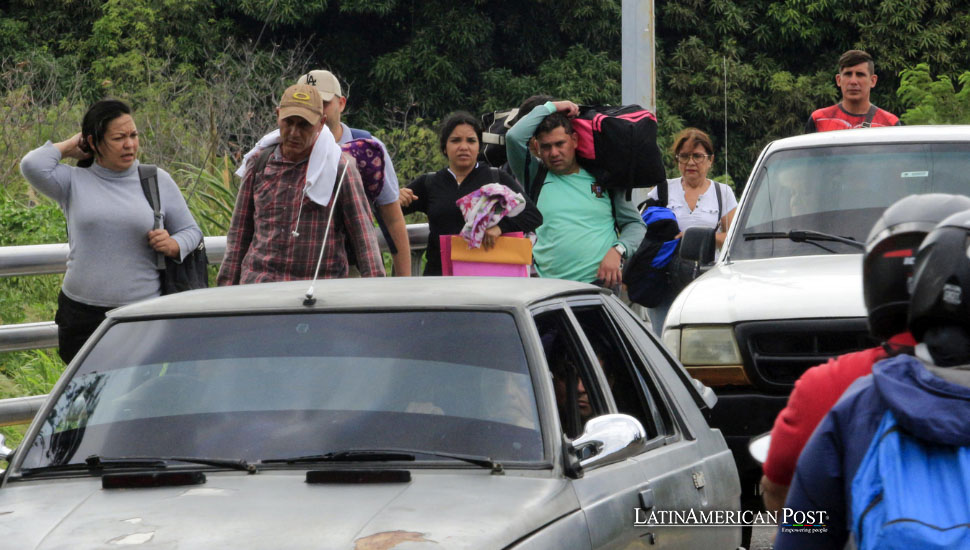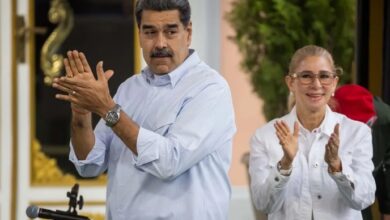Venezuelans Gear Up for Critical Presidential Election

Venezuelans are set to vote in a crucial presidential election this Sunday, where incumbent President Nicolas Maduro faces opposition candidate Edmundo Gonzalez amid concerns about the fairness of the electoral process.
This Sunday, Venezuelans are heading to the polls to vote in a presidential election that could shape the country’s future. The election pits incumbent President Nicolas Maduro against opposition candidate Edmundo Gonzalez, and concerns about the fairness of the process have marked it. The stakes are high, with the nation’s future hanging in the balance.
The Election and Its Stakes
The election, scheduled for July 28, follows a simple majority-wins format. This contest comes after the opposition boycotted the 2018 election, arguing that the conditions necessary for a fair vote were absent. This year, despite persistent skepticism, the opposition has rallied around Gonzalez, hoping to unseat Maduro and initiate much-needed reforms.
Maduro, a former bus driver who rose to power as the hand-picked successor of his mentor, Hugo Chavez, has been in office since Chavez died in 2013. He is now seeking his third six-year term. Under his leadership, Venezuela has seen a severe economic and social decline, exacerbated by the reimposition of U.S. oil sanctions in April. These sanctions responded to accusations that Maduro had failed to uphold agreements with the opposition to ensure free and fair elections.
The Opposition’s Candidate
Edmundo Gonzalez, a 74-year-old former diplomat and long-time but low-profile opposition member, has become the opposition’s face. Known for his calm demeanor, Gonzalez entered the race as a placeholder after the opposition primary winner, Maria Corina Machado, and her alternate could not register. In April, Gonzalez was officially named the opposition’s candidate.
Machado, 56, has vigorously supported Gonzalez, campaigning energetically alongside him. They have addressed large crowds nationwide, using emotional appeals and focusing on their vision for Venezuela’s future. Their campaign emphasizes the hope for the return of the many Venezuelans who have emigrated in recent years due to the country’s hardships.
Campaign Promises and Visions for the Future
Maduro’s campaign has been marked by promises of peace and economic growth to reduce Venezuela’s dependence on oil income. Despite facing numerous accusations of authoritarianism, Maduro has focused on inaugurating social infrastructure projects, such as schools and clinics, to bolster his support. His face will appear on the ballot for 13 different parties.
On the other hand, Gonzalez has committed to a transitional government that will enable the return of exiled Venezuelans and release political prisoners. When Machado was campaigning for herself, she advocated for the privatization of the state-owned energy giant PDVSA and other public companies, alongside the creation of a welfare program to support the poorest Venezuelans. These ideas have continued to resonate in Gonzalez’s campaign as well.
Other Candidates in the Race
While Maduro and Gonzalez are the primary contenders, there are nine other candidates on the ballot. However, these candidates have minimal support and are largely viewed by the opposition as government supporters. Their presence in the election has done little to shift the primary focus away from the Maduro-Gonzalez contest.
The fairness of the upcoming election has been a significant point of contention. The opposition and various observers have raised concerns about whether the vote will be conducted impartially. The memory of the 2018 election boycott lingers, casting a shadow over the current electoral process. Despite these concerns, the opposition has chosen to participate, driven by the urgency of the country’s dire situation.
The U.S. oil sanctions reimposed in April have added another layer of complexity to the election. These sanctions were a reaction to Maduro’s perceived failure to adhere to agreements with the opposition, aimed at ensuring a fair election. The sanctions have further strained Venezuela’s already struggling economy, contributing to the ongoing humanitarian crisis.
The Campaigns and Public Sentiment
As the campaign period draws to a close, both Maduro and Gonzalez have been working tirelessly to secure votes. Maduro’s campaign has focused on showcasing his government’s achievements in social infrastructure, aiming to project an image of stability and progress. Meanwhile, Gonzalez’s campaign has been fueled by the hope for change and the desire to address the economic and political challenges facing the nation.
Public sentiment appears divided, with many Venezuelans yearning for change but also skeptical about the possibility of a fair election. The economic hardships, widespread emigration, and political repression have left a deep impact on the populace. Gonzalez’s message of hope and transition has resonated with those seeking a new direction for the country.
Election Day and Aftermath
The official campaign period will conclude on Thursday, just before the voting takes place on Sunday. The results of the election could be published on the same evening or in the following days. The outcome will not only determine the next president of Venezuela but also signal the direction the country will take in the coming years.
The international community is closely watching the election, aware of its implications for regional stability and humanitarian issues. Observers from various organizations are expected to monitor the voting process, hoping to ensure transparency and fairness. The opposition’s participation, despite lingering doubts about the electoral process, reflects the desperation for change and the hope for a better future.
The Road Ahead
Regardless of the outcome, the challenges facing Venezuela will remain formidable. The country is grappling with hyperinflation, food and medicine shortages, and a mass exodus of its citizens. Addressing these issues will require substantial efforts and international support. The election, while crucial, is just one step in a long journey toward recovery and stability.
For Maduro, a victory would mean the continuation of his administration’s policies and the need to address the economic sanctions and international pressure. For Gonzalez, a win would represent a significant shift in Venezuela’s political landscape, with the daunting task of implementing reforms and rebuilding trust in the government.
Also read: U.S. Sanctions Venezuelan Gang Tren de Aragua in Major Crackdown
As Venezuelans prepare to cast their votes, the atmosphere is charged with anticipation and uncertainty. The election is more than a contest between two candidates; it is a referendum on the country’s future. With deep-rooted economic woes, political strife, and social challenges, the stakes could not be higher. Whether the election will be a turning point for Venezuela remains to be seen, but the hope for a brighter future persists among the people.




